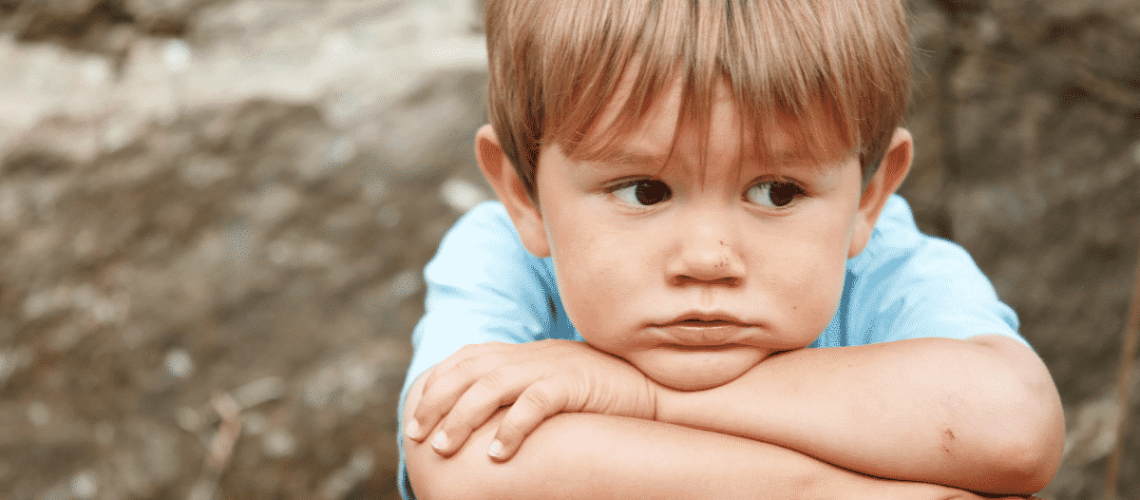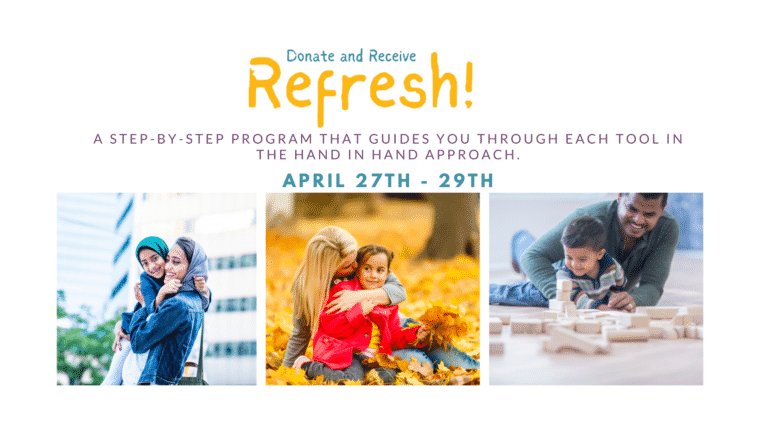A mama asked me recently what she should do when her child hits her?
How do you make a child stop hitting?
It's a great question, because the key part to remember is that we are responsible for making the behaviour stop. Actually making it stop, as opposed to telling your three-year-old to stop hitting.
This is because when your child hits you, you can be sure that their brain is offtrack. Their feelings have overridden their thinking capacity. And that means that the part of them that can follow an instruction to stop hitting is completely offline. That is why they do not stop when you simply ask.
How to stop a three-year-old hitting without yelling
And so what you need to do is make the hitting stop. Physically. Gently.
So when your child's hand is coming towards you, just take the little hand. Say, “No, love, I can't let you hit.”
“No, no.”
“No hitting.”
You do not need to be harsh. You don't actually need to raise your voice. Use the kind of tone you would use when you say “I love you.”
Use that gentle tone and hold their hands firmly. And what that might do is cause all the feelings that are driving the hitting to come to the surface. So they might get really rough and start trying to pound on you. Again, just take those little pounding hands, and then let all their tears come.
When that can happen, the emotions that are overwhelming the brain find a way out the body. Soon after, you'll find that they get their thinking back and stop hitting. You've got your angel back.
How to stop my child hitting others?
Another parent recently came to me and told me, “I just wish I knew what to do when my oldest child throws objects across the room at my toddler. I'm struggling to deal with it in a calm manner.”
Again, you, as the grown-up, need to intervene and make sure the throwing stops.
If your child is throwing or hitting it’s because they’re overloaded and they need your help. At that moment they're so frustrated or so upset that they have lost control of their actions.
You want to stop the hitting or throwing, but you also want to respond to that core need. Their frustration and upset. This is what caused them to hit or throw.
It helps to approach them firmly, but warmly. “Oops, you know what happens to boys that throw things at their sister, their hand needs lots of kisses”. Something like that. You may need to gently move them away. But stay with them.
Usually when we put a physical stop to the behaviour, the child will start to feel the feelings that are driving the behaviour.
They might get twitchy or try to wrestle. They may wail about how it’s so unfair.
At this point you just want to be available to listen, which lets them really get in touch with their feelings and work through the upset.
And while you should focus on listening, you can respond like this:
- “You hate when she does that.”
- “I can’t let you say that in front of her.”
- “I'm sorry it's hard.”
Your kind words and calm manner are very anchoring for them. This is why they feel safe to show you their true feelings, rather than stuff them away. The more they can get out of their system the better they’re going to feel, and when they feel better, they'll be able to be more cooperative, generous and kind.
Read more about what to do when one child hurts another.
The key to stopping any aggressive behaviour
Notice that in both situations, we follow the same pattern.
- Notice the behaviour and respond quickly.
- Get close and gently, physically stop the hitting or throwing.
- Listen to your child's feelings – which may intensify now you are close.
- Hold the limit that you can't let them hit or throw, but you will stay with them so they are not alone.
- Listen, and hold a quiet space as they work through the feelings and calm returns.
It can be hard handling a child who is hitting or kicking. If you find you get triggered, you can try this parenting tool.
Remember hitting, kicking, spitting, or throwing is a sign that their feelings have already overtaken their rational thought. Your child doesn't mean to hit. They don't want to hurt. They are just not in control properly at this point.
That's why it's so effective when you step in quickly. Your touch is more effective than words. Responding calmly soothes their overwhelm
Longterm, as you repeat these steps, they'll become better at identifying their feelings and communicating them before they get to hitting.
Want more connecting, respectful parenting tools?
Parent from that place in your heart that feels warm and good with Hand in Hand Parenting.
Whether you’re just starting with our five tools or you already love the approach and want to be more consistent in using it, this program will help.
Refresh gives you a full introduction on using each tool in your own dedicated classroom. Get a roadmap for parenting with connection – available April 27-29th. Sign up to the waitlist and we'll remind you when we launch.


